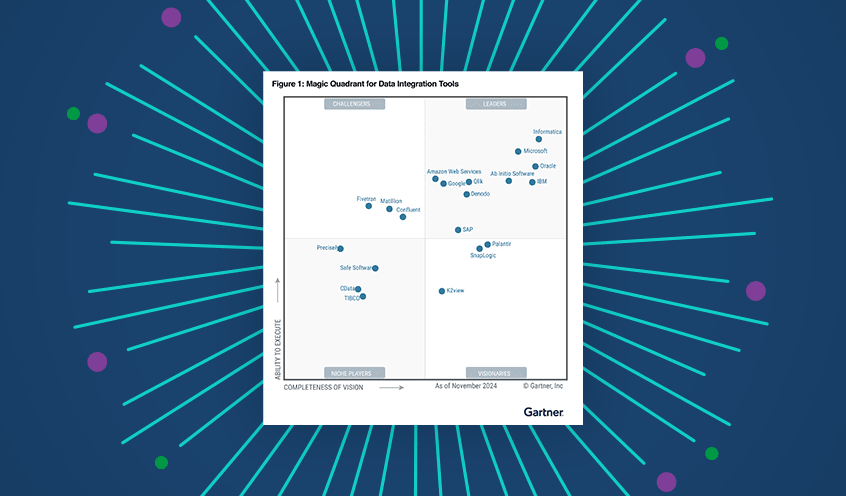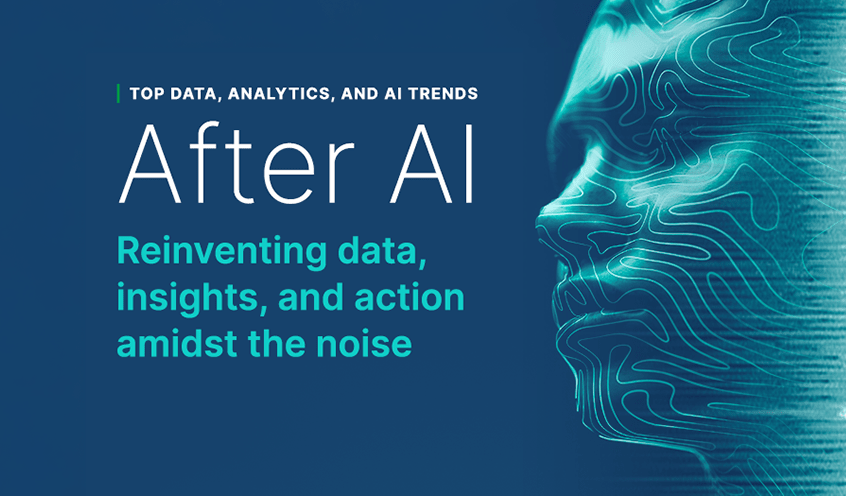2021 demonstrated the precariousness of our global supply chains and the potential cost to business. The Suez Canal blockage held up around $9.6bn of trade each day, while the true impact of the pandemic won’t be known for years. Many of us have also felt it during our weekly shopping and the disappointment when one of our favorite items is replaced by cardboard cutouts instead of the foodstuff themselves.
Although the first two may be extreme events, it doesn’t mean they – and future events like them – can’t be prepared for. Chief Purchasing Officers, and the supply chain managers that support them, must be in a position to anticipate the impact of these events and implement proactive action when they occur.
As with so much of our lives these days, I believe the answer lies in data or more specifically in the development of analytics data pipelines to stay ahead of supply disruption issues.
In his article, titled "Data deluge," for Qlik’s Active Intelligence magazine, Harvard lecturer and author Vikram Mansharamani makes the case for this approach, stating that “leaders should embrace a strategy of navigating uncertainty via ‘informed action,’ the strategic use of analytics to actively extract insight from data.” But, how does "informed action" and the data pipelines that enable it work in practice when it comes to supply chains?
Creating More Visible, Collaborative Supply Chains
In today’s digital economy, real-time agility is essential for staying competitive, an advantage that dried fruit and nuts supplier Whitworths is particularly aware of – “the food industry’s unpredictable, and bad weather in one country can have a massive effect on what’s going on with us, so we must be able to react to things.”
Up-to-date information needs to be delivered to the right user at the right time, in a way that enables them to act. This is not something that traditional BI can deliver. Qlik’s Active Intelligence Platform can. It provides all the data and analytics services you need to create a trusted end-to-end analytics data pipeline, which turns raw data into informed action – and helps organizations close gaps across their data value chain.
Supply chain departments collect tremendous amounts of data, but most of the data that can guide decisions and actions isn’t analytics-ready or accessible. By freeing data from its siloes, in real-time, the platform enables as many people as possible to access the data, enrich it, create derivative data from it, and discover insights that can be consumed anywhere.
And collaborated on. In an uncertain market, with increasingly complex and distributed supply chains and unforeseen disruptions around the corner, I believe that it’s more important than ever that stakeholders are tightly coordinated and can use the end-to-end visibility created by analytics data pipelines to better collaborate.
This was particularly important for Wickes and its suppliers, for which it wanted to enable greater visibility, engagement and transparency of sales, finances, stock movements and marketing through its i-supply solution. With Qlik, its suppliers can now “get to know and understand how you obtain your data, how you consume data and your frequency of use," said Sam Green, i-supply system manager at Wickes, a leading UK home improvements store. It allows suppliers to better plan and move supply and stock to the correct Wickes Stores with more accurate forecasting and opportunities.
This is also true of even the most unexpected situations. No one would have predicted that one ship could block the Suez Canal for days at a time. Such incidents need to be factored into decision making in real-time, with an assessment of its likely impact and action taken to mitigate it. Bringing together analytics, collaboration, automation and action orientation together on the Active Intelligence Platform allows for situations to be recognized, their impact understood, and responded to as they unfold, rather than mitigating the effects after the fact.
Shaping Your Future
Keeping ahead of supply chain disruption and ensuring proactive action with customers is what will separate those that succeed in this uncertain world and those that don’t. But, that proactivity through "informed action" doesn’t just allow companies to survive the unexpected but, as Mansharamani suggests, also shape events – “to act in a way that produces an advantageous outcome.”
In today's digital economy, building an analytics #data pipeline is vital for staying ahead of supply chain disruptions. Find out how your business can benefit from taking informed actions.
In this article:
Analytics













































